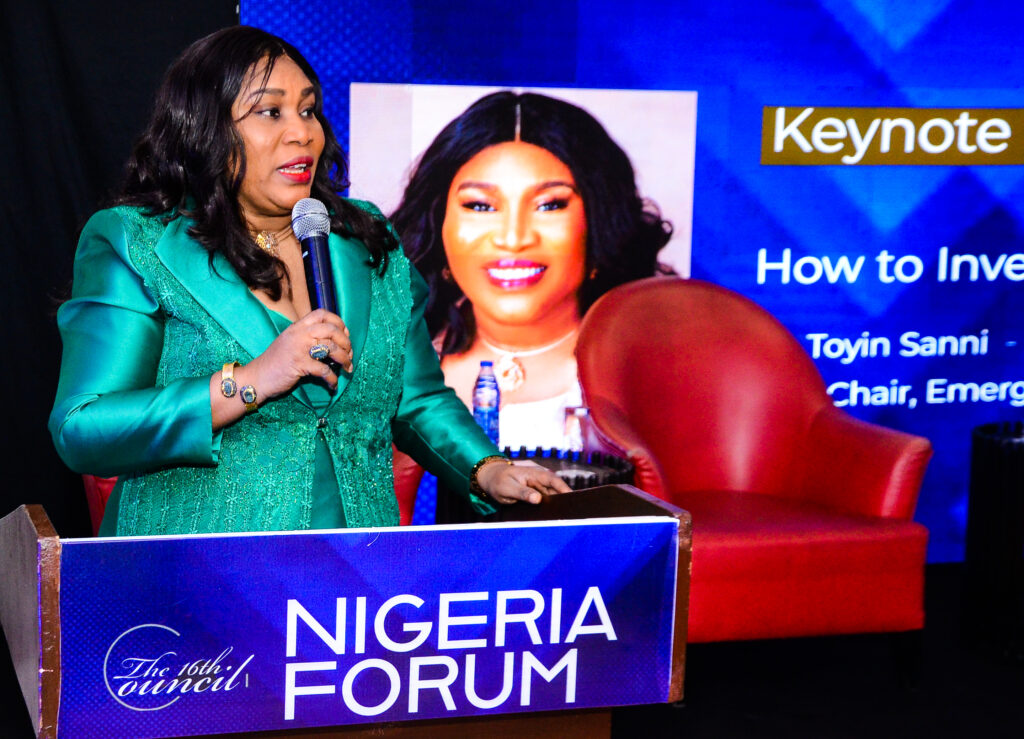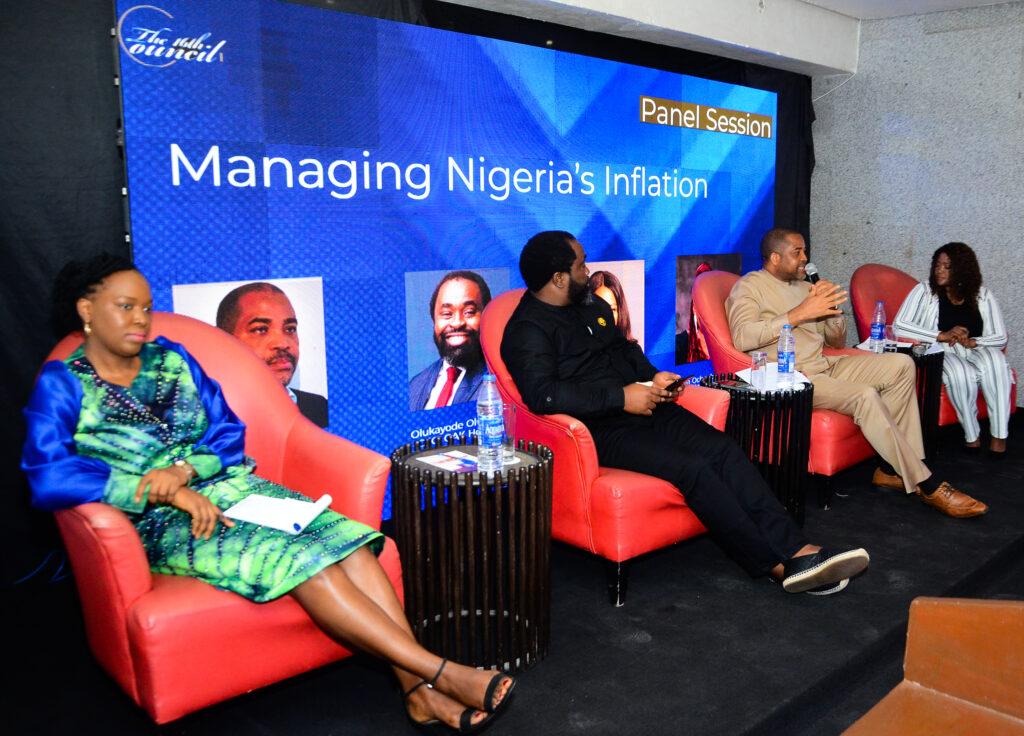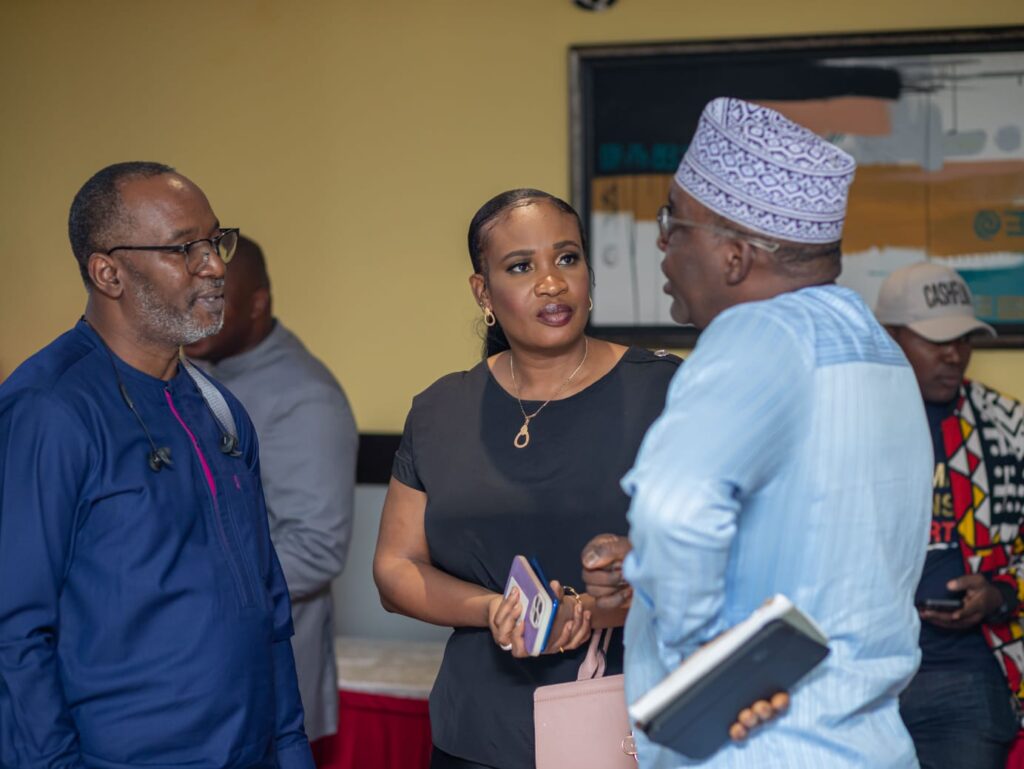The Nigerian Forum 2023 Gallery




The 2024 Nigeria Forum Aims to Delve Deeper into Crucial Issues and Contribute to Evidence-based Policy Making for the Country's Progress.
The Nigeria Forum, now in its second edition, continues to be an influential platform that brings researchers and policymakers together to engage in meaningful conversations about Nigeria’s challenges and opportunities. Building on the success of the previous edition, the 2024 Nigeria Forum aims to delve deeper into crucial issues and contribute to evidence-based policy making for the country’s progress.
Organized by Dr Brian Reuben and the Sixteenth Council, an international think tank, the Nigeria Forum’s credibility stems from its commitment to promoting rigorous research, fostering intellectual discourse, and bridging the gap between academia, government, and other relevant stakeholders.
The primary objective of the 2024 Nigeria Forum is to address the critical issues facing Nigeria’s economy. Nigeria stands at a critical juncture, with immense potential yet facing pressing challenges. The country’s innovative tech sectors, dynamic young population, and rising global interest in its markets offer a promising foundation. However, the nation must address pressing issues such as high inflation, unemployment, foreign exchange constraints, insecurity, unsustainable debt, and the lack of opportunities for its youth.
The key to unlocking Nigeria’s true potential lies in harnessing its strengths, stabilising the economy, navigating global volatility, addressing the climate crisis, and empowering the country’s youth to drive sustainable and inclusive growth.
The Nigeria Forum serves as a platform to begin finding these answers. This prestigious event brings together policymakers, business leaders, financiers, and visionaries to engage in crucial dialogues and networking aimed at transforming Nigeria’s challenges into opportunities.
Together, stakeholders can devise strategies to harness Nigeria’s inherent strengths, stabilize the economy, navigate the complexities of the global landscape, tackle the climate crisis, and unleash the power of the country’s young population to propel sustainable and inclusive development.
In addition to economic challenges, the 2024 Nigeria Forum also aims to tackle issues related to democracy and governance. Recognizing the vital role of good governance and robust democratic institutions in Nigeria’s stability and development, researchers and policymakers will gather at the forum to discuss governance models, electoral reforms, human rights, transparency, and accountability. By fostering dialogue and sharing international best practices, the Nigeria Forum seeks to strengthen democratic institutions and promote good governance within the country.
The 2024 Nigeria Forum, now in its second edition, continues to serve as a vital platform for researchers and policymakers to address Nigeria’s challenges and explore its opportunities. By focusing on crucial issues such as economy, democracy, geopolitics, security, technology, and health, the forum aims to contribute to evidence-based policy making and the development of strategies for Nigeria’s sustainable development and global engagement.
Impact of Uncertainties on Nigeria’s Development Prospects:
Global, regional, and national uncertainties pose significant risks to Nigeria’s development. Disruptions in trade, investment flows, and economic growth are often exacerbated by geopolitical tensions, such as ongoing conflicts and shifting alliances, adding complexity to Nigeria’s economic landscape. These tensions can result in trade restrictions, sanctions, and changes in global supply chains, which negatively impact Nigeria’s economy, heavily reliant on a narrow range of exports. Additionally, volatility in global financial markets, driven by fluctuating interest rates and international relations, contributes to economic instability. Nigeria is particularly vulnerable to price shocks, which exacerbate issues like worsening inflation, a depreciating naira, and significant external debt, thus limiting the country’s capacity to finance its development. This topic aims to delve deeply into the complexities and nuances of Nigeria’s economic landscape amid global uncertainty, fostering a proactive discussion on resilience and economic policies under these conditions.
Practical Nigerian Strategies to Build Resilience to Global Shocks:
Enhancing the stability and growth of Nigeria’s economy in the face of global shocks requires a multifaceted approach. Economic diversification is crucial to reduce reliance on a limited range of export commodities. The African Continental Free Trade Area (AfCFTA) plays a significant role in boosting intra-African trade and providing a buffer against global economic turbulence. Expanding social safety nets is essential to protect vulnerable populations and foster societal resilience. Governance reforms and stable macroeconomic environments are vital for achieving long-term economic resilience. Additionally, adopting climate-smart agricultural practices can secure food production and address environmental challenges. Strengthening economic sovereignty through prudent monetary policies and managing naira fluctuations is also critical to building resilience.
Innovative Development Financing in an Era of Growing Uncertainty:
Securing development financing amidst high risk and uncertainty requires innovative approaches. International financial institutions play a crucial role in supporting development during uncertain times. Domestic resource mobilization, through taxes, levies, and royalties, ensures sustainable financing for development projects. Public-private partnerships (PPPs) are pivotal in attracting private sector investments in essential infrastructure projects, significantly boosting economic development. Blended finance instruments, combining concessional funding from donors with commercial capital from the private sector, are effective in enhancing investment in high-impact sectors.
The Role of Technology in Fostering Predictability and Creativity:
Technology is a key driver of economic development and innovation in Nigeria. Digital tools can enhance predictability by providing better data for decision-making, particularly in agriculture through weather forecasting and market price information. Mobile banking and fintech innovations improve financial inclusion and economic resilience, making financial services accessible to a broader population. Technology also fuels creativity and entrepreneurship, which are vital for economic diversification and job creation. The rise of tech hubs across Nigeria demonstrates technology’s potential to foster a new creative economy. This theme underscores the multifaceted role of technology in shaping Nigeria’s economic landscape, from improving sector-specific outcomes to igniting broader entrepreneurial ecosystems.
The Summit will officially kick-off on the morning of the 7th of October. The summit will be multi-tracked, delving into each of the strands of the Summit DNA.
The evening will feature the prestigious Distinguished Leadership Awards. The Awards represents a benchmark of excellence for individuals and organisations demonstrating commitment to Nigeria’s Development across industries. Recognising and honouring the individuals and companies who, over the years, have been at the forefront of first-class value creation, innovation, or exceptional financial and operating performance.
The Awards also celebrates the executives who continue to change the face of their industry demonstrating outstanding leadership and performance. It is a core social gathering once a year with a bang, it’s not to be missed! This will not only be an opportunity to celebrate excellence but it will also give delegates the opportunity to experience the rich culture, heritage and hospitality that London is famous for.
It also offers a unique opportunity for speakers, guests and delegates from across the business and political worlds to come together in a less formal manner and continue the conversations of the day in a more social and relaxed setting.




Global Visibility and Influence: London is a global hub for finance, diplomacy, and academia. Holding the forum in London attracts a diverse range of participants, including policymakers, researchers, industry leaders, and international stakeholders. This global audience would amplify the forum’s impact and visibility, elevating Nigeria’s profile on the international stage.
Neutral Ground for Dialogue: London’s reputation as a neutral and cosmopolitan city makes it an ideal venue for fostering open and constructive dialogue. As a neutral ground, London provides a conducive environment for participants to engage in frank discussions on sensitive issues such as governance, security, and regional dynamics, without the constraints of domestic politics.
Access to Expertise and Resources: London is home to a wealth of expertise across various fields, including economics, governance, security, technology, and healthcare. Hosting the forum in London facilitates access to leading experts, research institutions, and resources, enriching the discussions and ensuring high-quality insights and recommendations.
Diplomatic and Networking Opportunities: London’s status as a diplomatic capital offers unique networking and diplomatic engagement opportunities. Hosting the forum in London would enable Nigerian policymakers to engage with representatives from foreign governments, international organizations, and diplomatic missions, fostering valuable connections and partnerships that can support Nigeria’s development agenda.
Showcasing Nigeria’s Potential: Hosting the Nigeria Forum in London would provide a platform to showcase Nigeria’s potential, achievements, and opportunities to a global audience. By highlighting Nigeria’s economic, cultural, and intellectual vibrancy, the forum can attract investment, partnerships, and collaborations that contribute to Nigeria’s sustainable development and global engagement.
Hosting the 2024 Nigeria Forum in London offers a strategic opportunity to leverage the city’s global prominence, expertise, and resources to advance meaningful dialogue, collaboration, and progress towards addressing Nigeria’s challenges and harnessing its opportunities.